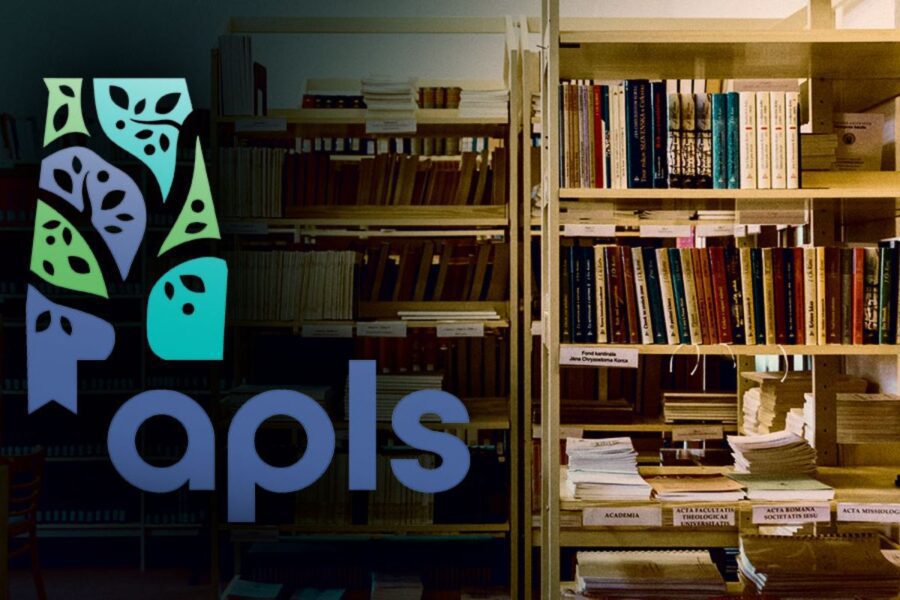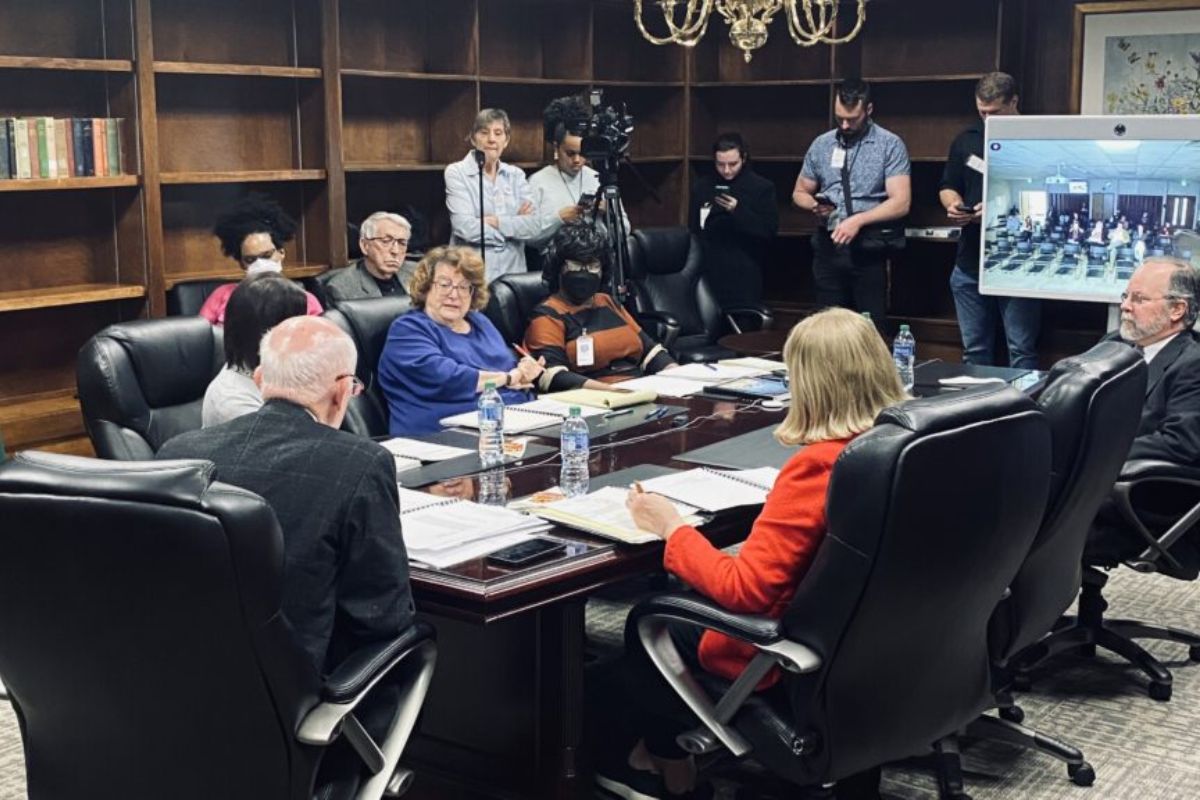Dubose Raises Concerns Over APLS Code: The recent code change proposed by the Alabama Public Library Service (APLS) has raised concerns among library professionals and patrons alike.
Notably, Dubose, a prominent figure in the library community, has expressed reservations about the potential impact of these amendments.
The controversy surrounding the code changes has sparked a heated debate, with supporters and critics voicing contrasting opinions.
As the situation unfolds, it remains unclear how these amendments will affect the services and resources provided by APLS.
In this discussion, we will explore the key concerns raised by Dubose implications of the code change for libraries in Alabama.
Key Takeaways
- Rep. Susan Dubose criticizes APLS for delay in approving code changes, raising concerns about potential negative impact on state funding for local libraries.
- Uncertainty surrounding proposed library code amendments and their potential implications for how libraries operate and the services they provide.
- APLS board’s unexpected decision to disaffiliate from ALA, prompted by concerns about ALA’s alleged ‘Marxist agenda’, has significant implications for APLS and its relationship with the national association.
- Mixed reactions to APLS’s disaffiliation from ALA, with some praising the move as a step in the right direction towards local control, while others express disappointment and debate the future direction of APLS and its relationship with ALA.
Library Code Changes Spark Controversy in Alabama
The proposed library code changes in Alabama have ignited controversy and raised concerns about potential impacts on state funding for local libraries. Rep. Susan Dubose has criticized the Alabama Public Library Service (APLS) for what she perceives as a delay in approving Governor Kay Ivey’s proposed changes to the library code. Dubose is worried that these changes may have a negative effect on the financial support received by local libraries.
The controversy stems from the belief that the APLS, as the state agency responsible for overseeing library services, should have been more proactive in addressing these concerns and ensuring the smooth implementation of the code changes. This criticism highlights the importance of effective communication and collaboration between state agencies and lawmakers to ensure the best outcomes for public resources.
Uncertainty Surrounding Proposed Library Code Amendments
Amidst the controversy and concerns surrounding the proposed library code amendments in Alabama, uncertainty looms over the potential implications for state funding and the future of local libraries.
The delay in approving Governor Kay Ivey’s proposed changes to the library code has raised questions about the direction the Alabama Public Library Service (APLS) will take. Rep. Susan Dubose’s criticism adds to the uncertainty, as she expresses concerns about the impact on state funding for local libraries.
The proposed amendments, if implemented, could potentially affect the way libraries operate and the services they provide to the community. The uncertain future of local libraries and the potential loss of state funding are causing anxiety among library officials and supporters, who are eager for clarity and reassurance.
APLS Board Votes to Disaffiliate from American Library Association (ALA)
Following a surprising decision, the APLS board has voted to disaffiliate from the American Library Association (ALA). This move comes after board member John Wahl raised concerns about the ALA allegedly pushing a ‘Marxist agenda.’ The decision to disaffiliate was unexpected, as the board had initially planned to address it in March.
This decision has significant implications for the APLS and its relationship with the ALA. It is essential to understand the reasons behind this decision and the potential impact it may have on the APLS and the broader library community. To provide a clear overview, the table below outlines the key factors surrounding the disaffiliation vote:
| Factors | Description |
|---|---|
| Concerns Raised | Board member John Wahl expressed concerns about the ALA’s alleged ‘Marxist agenda.’ |
| Timing | The disaffiliation vote was unexpected, as the board had planned to address it in March. |
| Implications | The disaffiliation decision has significant implications for the APLS and its relationship with the ALA. |
| Motivations | The reasons behind the disaffiliation decision need to be examined to understand the board’s motivations. |
| Broader Impact | The disaffiliation decision may have broader implications for the library community as a whole. |
Mixed Reactions to APLS’s Disaffiliation from ALA
After the unexpected decision to disaffiliate from the American Library Association (ALA), the APLS’s disaffiliation has garnered mixed reactions from various stakeholders.
The Alabama Library Association submitted a counterproposal with alternate amendments focusing on parental supervision of children’s materials.
Hannah Rees, executive director of Clean Up Alabama, praised the disaffiliation but urged a complete severing of ties with the ALA.
The board’s decision to leave the ALA was deemed a step in the right direction, although some, like Matthew Layne, president of the Alabama Library Association, expressed disappointment.
The disaffiliation has sparked a debate regarding the future direction of the APLS and its relationship with the ALA.
While some view it as a positive move towards maintaining local control and addressing community concerns, others are concerned about losing the benefits of being affiliated with a national library association.

ALSO READ: Alabama Public Library Service Exit From National Group Debate
APLS Survey and Public Comment Period
The APLS conducted a survey of public libraries in the state, revealing insights into the challenges faced and the perception of the significance of the issue. The survey findings indicate that out of the 84 respondents, only eight libraries reported facing challenges related to book censorship. These eight libraries documented a total of 131 challenged books, suggesting that the majority of local libraries do not perceive book censorship as a significant problem.
To gather public input on the proposed code changes, a 90-day public comment period has been opened. This allows individuals and organizations to express their opinions and concerns regarding the potential changes. Additionally, a hearing is scheduled for April 30, providing an opportunity for stakeholders to present their views directly to the APLS.
The survey results and the ongoing public comment period indicate a commitment to transparency and inclusivity in the decision-making process surrounding the code changes.
Conclusion Of Dubose Raises Concerns Over APLS Code
The recent code changes and disaffiliation of APLS from ALA have caused controversy and mixed reactions in Alabama. The uncertainty surrounding the proposed library code amendments has raised concerns among stakeholders.
The decision by APLS to disaffiliate from ALA has sparked further debate within the library community. The APLS survey and public comment period will provide valuable input and feedback on these developments.
Overall, these events have created a significant impact on the library landscape in Alabama.
Our Reader’s Queries
Are public libraries declining?
Abrams’ article noted a 31% decrease in library visits from 2000 to 2018. While some may not see the decline of public libraries as significant, for many, they are an essential resource.
Does Alabama have a state library?
The Alabama Public Library Service, based in Montgomery, AL, is the official state library agency for Alabama.
What is the largest public library in Alabama?
Founded in 1886, the Birmingham Public Library has expanded from a modest book collection stored in a closet-sized room to become Alabama’s largest library system. Its impressive holdings now include nearly one million books and over 30 million archival documents.

